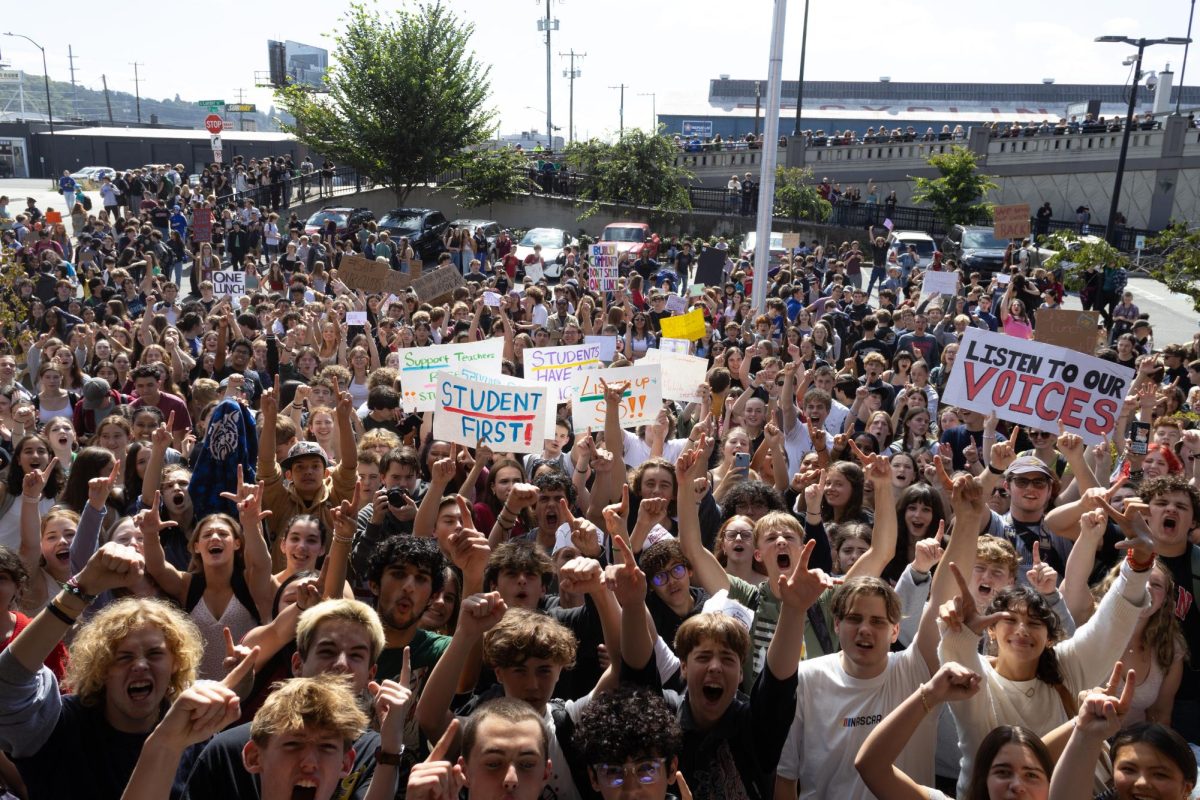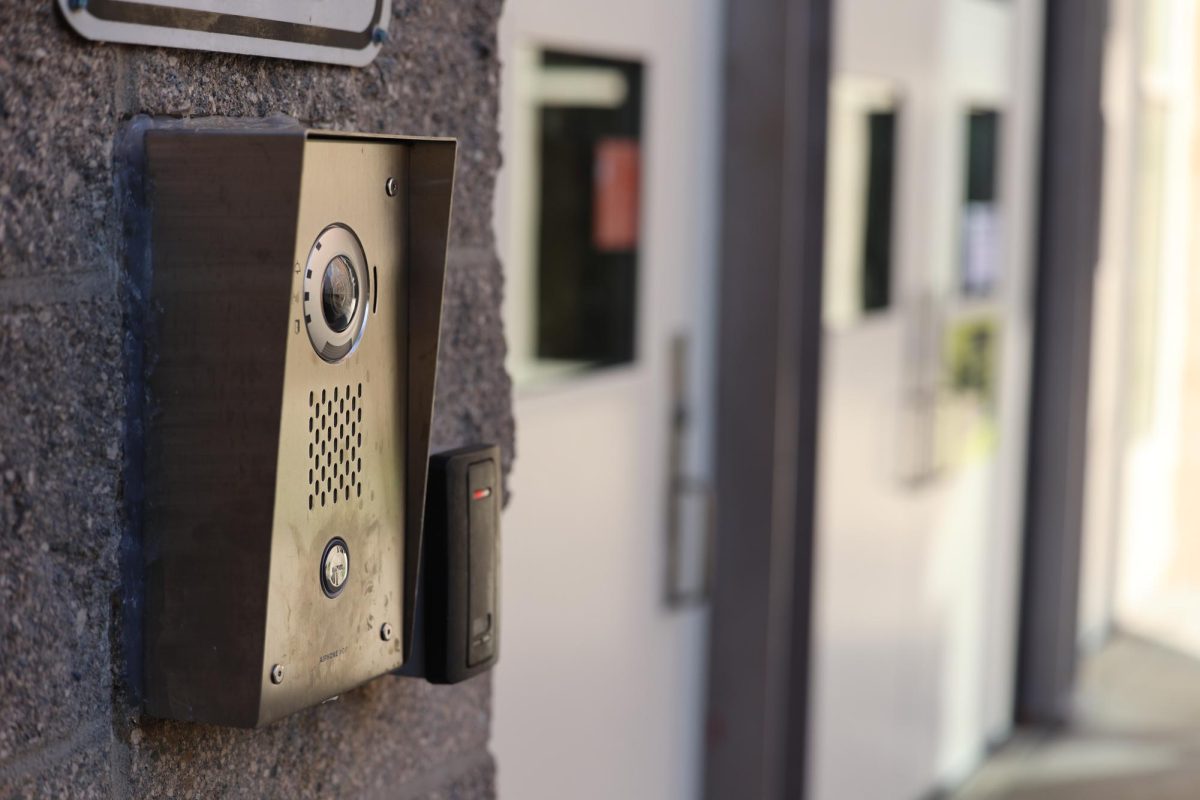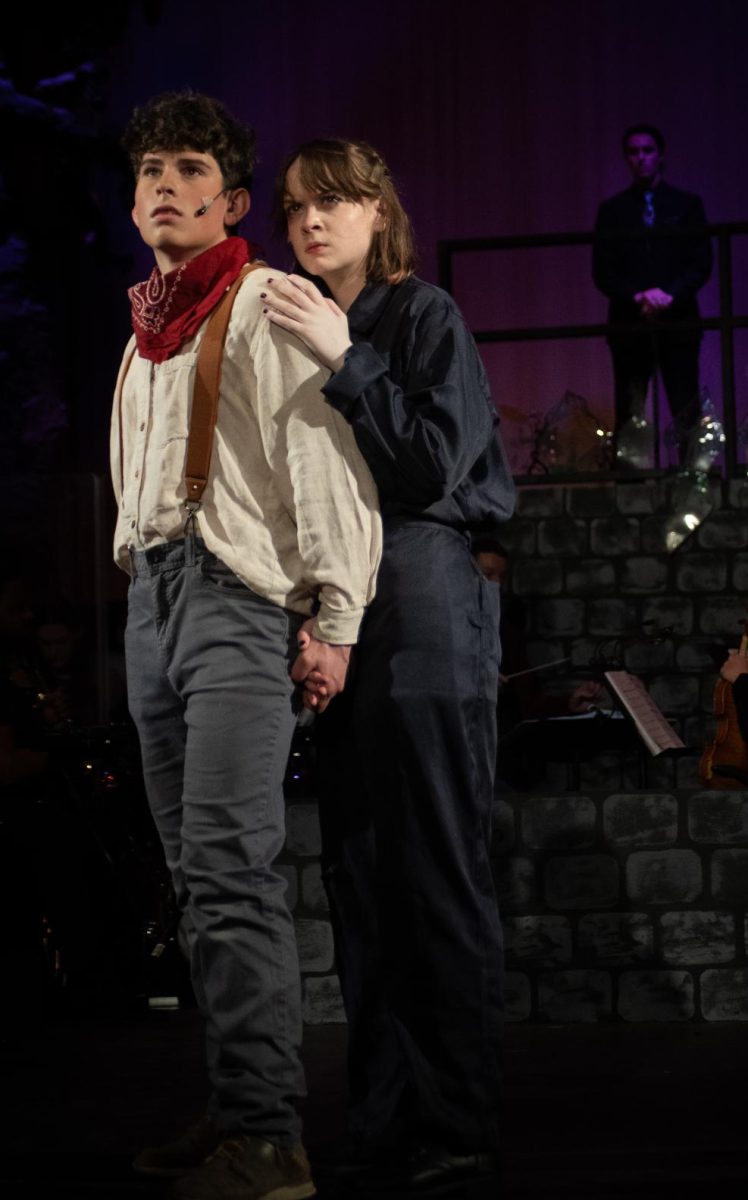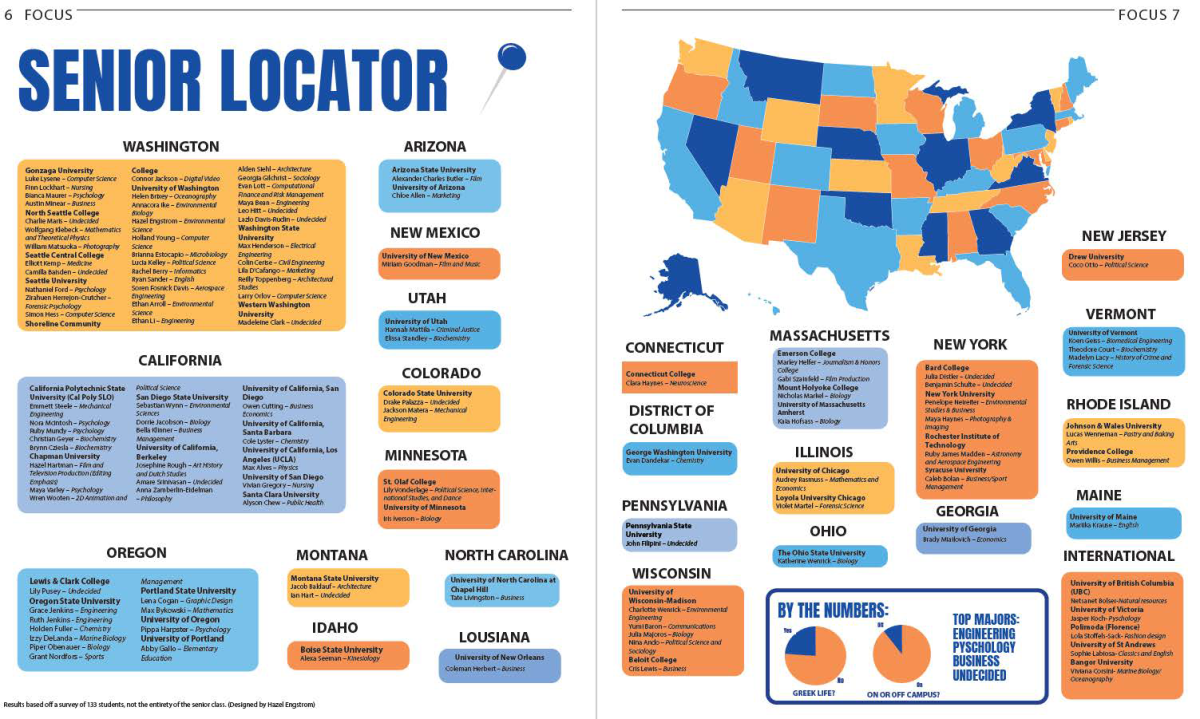In response to violence around the district, Seattle Public Schools (SPS) has instituted a new district-wide security program this year, drawing mixed reactions from students and staff.
According to the Seattle Public Schools webpage, SPS is rolling out a set of district-wide safety measures in response to recent violent incidents.
“Despite many moments of joy last school year, the tragic loss of students to gun violence deeply saddened our community,” SPS Superintendent Brett Jones wrote. “These incidents, along with threats of violence, have understandably raised concerns about school and community safety.”
The district has already implemented several of these measures, such as locking exterior doors during most school hours and, according to Fox News, hiring one guard for Ballard and most high schools, some having two. Some measures, such as an increased police presence near schools, will not start, according to a Seattle Times story, until later in the year.
According to Mayor Bruce Harrell’s website, while direct police presence will focus on a set of high schools not including BHS, part of the safety strategy is to work with first responders and the police in creating an “unified student safety plan.”
The buzzer system on exterior doors which allows authorized people to enter during school constitutes one of the most obvious effects of the program at BHS.
“Although it can be a little bit annoying, pressing the doorbell when we go in the school,” said Carmensofia Avelar Larios, junior and leader of the BHS Social Justice Club. “It actually is helpful, just in case, if there are some people that want to get into this building. I feel a little bit safer with that.”
Leo White, a BHS safety and security officer, says students should respect that the doors must stay locked during school hours, saying that people don’t leave their homes or places of business unlocked.
“A lot of times people prop doors open,” White said. “And that’s not safe. That’s why every time I pass a door I check it, because sometimes people prop doors open to let their friends in or whatever.”
Some parts of the program face criticism. Avelar Larios said that in her personal opinion, whether hiring security guards will make SPS much safer “just all depends.”
,” Avelar Larios said. “If it’s about gun legislation, then that’s a really hard topic to work around.”
Brandy Williams-Gurian, senior and co-leader of the BHS Building Equity and Challenging Hate (BEACH) Club, also criticized the security program, saying that she wants an opportunity for students and faculty to give feedback.
“I don’t know exactly what I would do in this moment, but I do think that there probably should be a bigger conversation about the security and how it’s impacting people, because I think at this point it’s just been something that’s just been fully put into people’s lives and their everyday experience in a way that wasn’t established in a communicative way that we would’ve liked to see,” Williams-Gurian said.
The security program draws criticism beyond BHS. According to Leo Falit-Baiamonte, a Seattle Student Union (SSU) press representative and Nathan Hale student, the union strongly opposes the presence of any security guards or police around schools.
“The SSU does not support police,” Falit-Baiamonte said. “We support more school mental health resource counselors, and the Seattle City Council, specifically, voted that down as a no in August.”
According to KUOW, the City Council promised in November 2023 to spend $20 million on school mental health, but cut it by half in August. Finally, according to the Seattle Times it ultimately committed to $14.55 million raised between SPS and the Council, with the city’s part spent on mental health and SPS’s part spent on security.
Two representatives of Seattle Student Union, Miles Hagopian, a Franklin High School sophomore, and Falit-Baiamonte, attended the October 16 public hearing on the city budget. They asked the council to give the full $20 million instead of the $19.25 million which, according to KUOW, the proposed budget allocates.
“I was wondering if you,” Falit-Baiamonte asked councilperson Dan Strauss, “as a councilperson, if you were still at Hale, would you not vote for 20 million, and would you hope to not have funding in your own high school?”
The Talisman asked SPS for comment on the role of police in the security program, how decisions on the program were split between SPS and the mayor’s office, and the degree to which SPS and the mayor’s office consulted students while designing the program. SPS declined to comment.
When it comes to how students can influence government and the school, Williams-Gurian suggests allying with people who support them and Avelar Larios suggests creating conversations between both sides of arguments by contacting staff members and “important people and officials”, while SSU suggests following the union and attending the public city budget hearing on November 21.






















